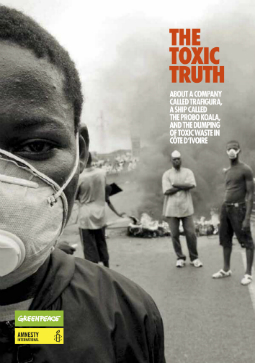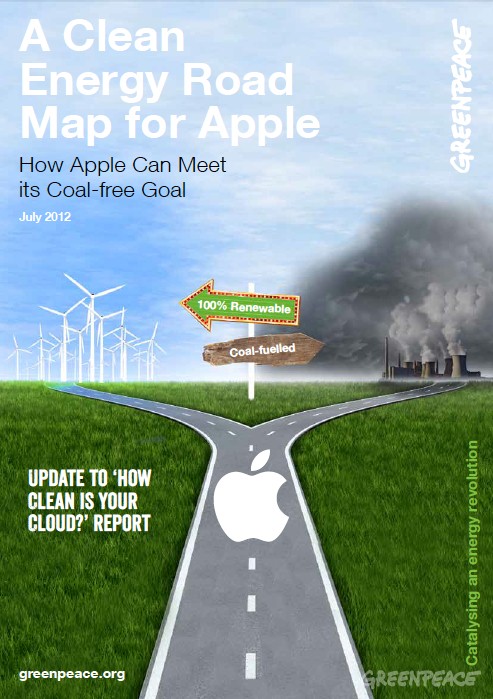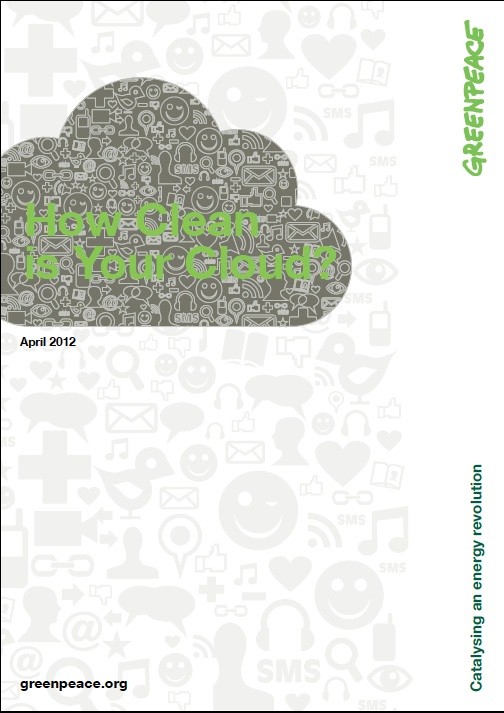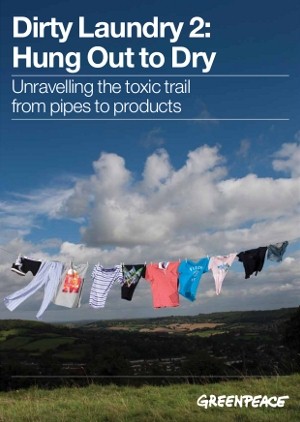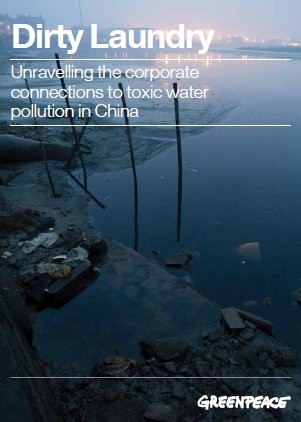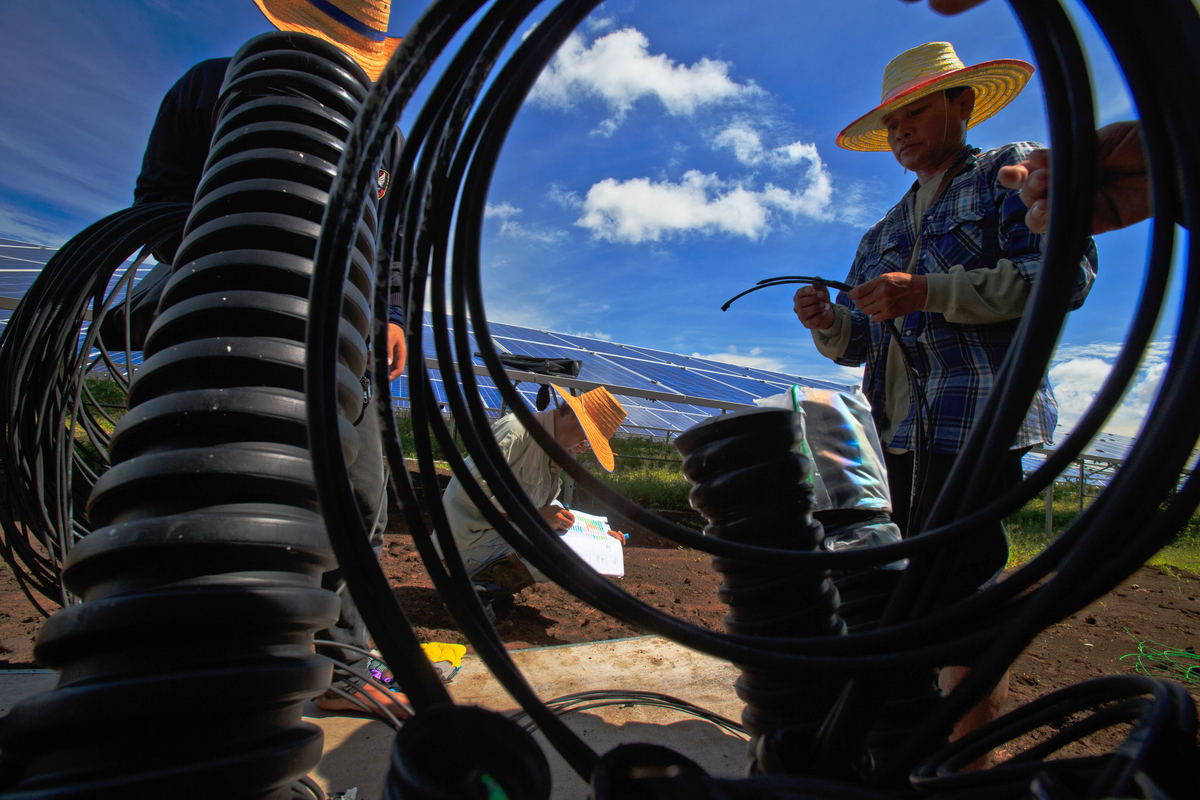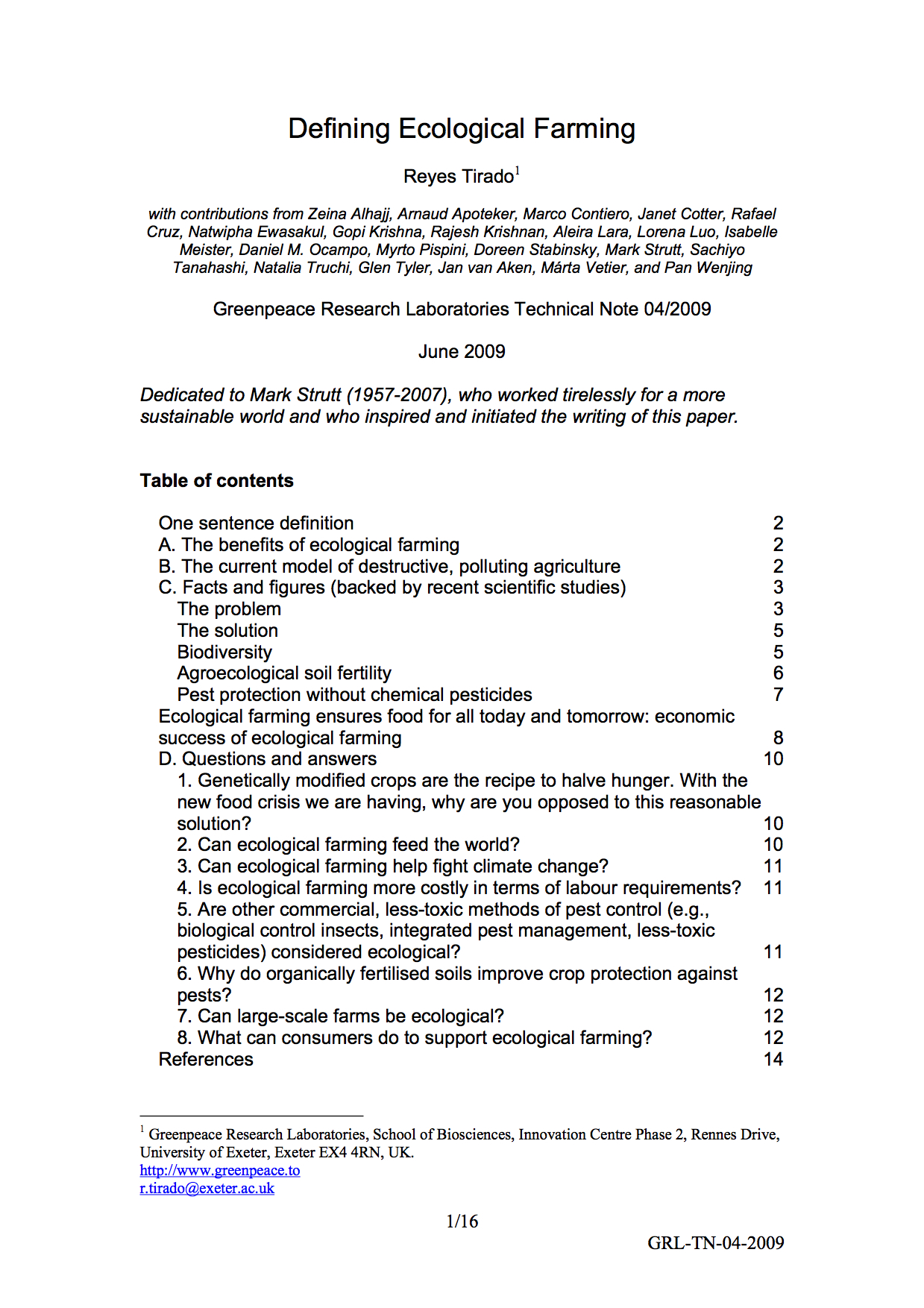All articles
-
Full marks for Marks & Spencer
Encouraging a fashion behemoth to change the way it produces clothing is no small task. But armed with the facts and the collective power of supporters like you, we are able to achieve the sort of success story we are announcing today.
Martin Besieux • 2 min read -
The Toxic Truth
This is a story of corporate crime, human rights abuse and governments’ failure to protect people and the environment. A joint report by Amnesty International and Greenpeace Netherlands.
-
Apple Clean Energy Road Map
The following analysis updates our evaluation of Apple to account for its recent clean energy announcements, and outlines the additional steps Apple should take to fulfill its laudable ambition to set a new bar with a “coal-free” and 100% renewably-powered iCloud.
-
How Clean is Your Cloud?
How much energy is required to power the ever-expanding online world? What percentage of global greenhouse gas emissions is attributable to the IT sector? This report takes a look at the energy choices some of the largest and fastest growing IT companies are making, as the race to build "the cloud" creates a new era…
-
Dirty Laundry: Reloaded
Water is essential for life, but it is also the world's most threatened essential resource. It is imperative that solutions are found to stop poisoning the precious resources we have left with hazardous chemicals.
-
Dirty Laundry 2: Hung Out to Dry
Research commissioned by Greenpeace International has revealed that clothing and certain fabric-based shoes sold internationally by major clothing brands are manufactured using nonylphenol ethoxylates (NPEs). NPEs -- which are used as surfactants in textile production -- subsequently break down to form toxic nonylphenol (NP). Nonylphenol is a persistent chemical with hormone-disrupting properties that builds up…
-
Dirty Laundry
A new investigative report from Greenpeace, 'Dirty Laundry', profiles the problem of toxic water pollution resulting from the release of hazardous chemicals by the textile industry in China. The investigations focuses on two facilities that were found to be discharging a range of hazardous and persistent chemicals with hormone-disrupting properties. These results are indicative of…
-
Why De-Growth? An interview
The Degrowth movement addresses the growth of human consumption, driven by economic growth, population growth, and the impacts of resource extraction.
-
Hidden Consequences
Industrial pollution is a severe threat to water resources around the world, particularly in the Global South where the view prevails that pollution is the price to pay for progress.
-
Defining Ecological Farming
Ecological Farming ensures healthy farming and healthy food for today and tomorrow, by protecting soil, water and climate, promotes biodiversity, and does not contaminate the environment with chemical inputs or genetic engineering.


